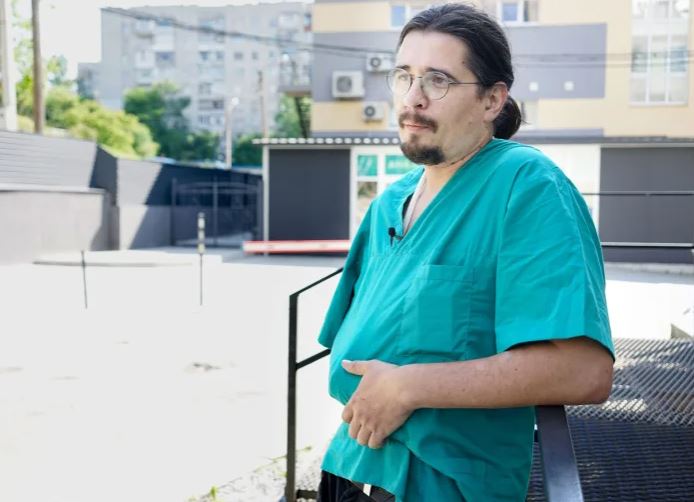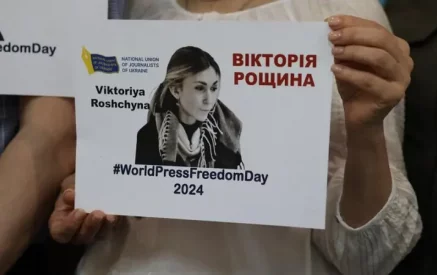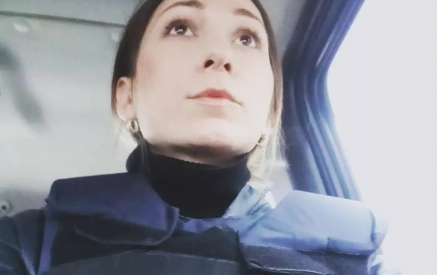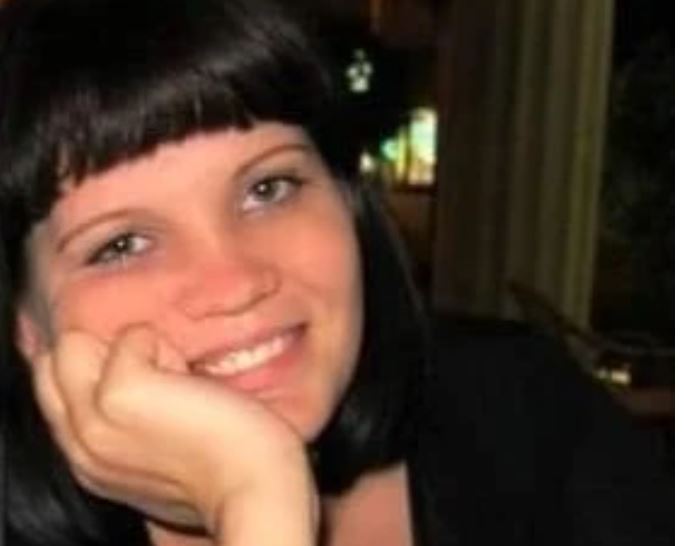Russian and Ukrainian authorities must ensure the safety of journalists reporting on the war in Ukraine and investigate the shelling that seriously injured Ukrainian fixer and documentarian Mykola Pastukh, the Committee to Protect Journalists said Thursday.
On May 28, Russian forces shelled the eastern city of Lysychansk, in the Luhansk region, amid a push to take control of territory in the Donbas still held by Ukrainian forces, as the Luhansk regional governor and media reported. Pastukh was traveling with Hong Kong-based freelance photojournalist Alex Chan Tsz Yuk and London-based freelance journalist Kaoru Ng from Lysychansk to the nearby city of Sievierodonetsk. They were going to cross the city’s last functional bridge when they observed a burning vehicle in the way, so they hid their car and approached to take photos, Chan Tsz Yuk told CPJ in a phone interview.
As they got closer, two Ukrainian soldiers crossing the bridge told the journalists that it was a dangerous area and that they needed to return to their vehicle, Chan Tsz Yuk told CPJ. As the journalists turned back, a shell exploded a few meters from them, injuring Pastukh, according to Chan Tsz Yuk, who captured the incident on video; news reports that cited Pastukh; and Ng, who spoke to CPJ via social media.
Chan Tsz Yuk told CPJ that he and Ng were wearing jackets marked “press” and Pastukh was wearing a black bullet-proof jacket with no markings. Ng told CPJ that the first strike was “extremely precise,” adding that “in the vicinity, there were only us and the two soldiers, and nothing else to hit.” He continued, “After we hid in the ditch, they continued to shell us two more times.”
Read also
“We are deeply concerned by the attack that injured Ukrainian journalist Mykola Pastukh and want to remind the warring parties that journalists are to be treated as civilians under international humanitarian law,” said Gulnoza Said, CPJ’s Europe and Central Asia program coordinator, in New York. “Ukrainian and Russian authorities must investigate the attack that injured Pastukh, and Russia must ensure that members of the press covering the war are not targeted.”
Pastukh was hit by shrapnel in his right arm, which is now partially paralyzed, and broke a rib, according to Katerina Sergatskova, chief editor of Ukrainian independent news outlet Zaborona, who spoke to CPJ via messaging app and interviewed Pastukh. He is currently hospitalized in the western city of Lviv, Sergatskova said.
According to Zaborona, since the beginning of the war, Pastukh has worked as a fixer for foreign journalists and was filming a documentary about their work on the front lines.
Both Chan Tsz Yuk and Ng suffered minor scratches from the shelling, and one of the Ukrainian soldiers was injured in his left leg, according to those two journalists. Chan Tsz Yuk told CPJ that he has had hearing problems in his left ear since the shelling.
Chan Tsz Yuk works as a freelance photographer for Hong Kong-based press agency SOPA Images, and Ng regularly contributes as a freelance reporter to privately owned Japanese broadcasters TBS Television and TV Asahi and online news website 8bit news, Ng told CPJ. Ng also films documentaries for Japanese public broadcaster NHK.
On May 30, French journalist Frédéric Leclerc-Imhoff was killed by a Russian attack on the road to Lysychansk, as CPJ documented.
Separately, on Wednesday, June 1, the Russian defense ministry-affiliated TV channel Zvezda reported that its correspondent Valentin Gvozdev was injured by shrapnel while leaving Sievierodonetsk. Gvozdev told the outlet he was hit in the elbow, but it was “a scratch,” and he did not “feel any discomfort.” CPJ could not confirm the source of the shelling, and Zvezda did not respond to CPJ’s emailed request for comment.
CPJ emailed the Russian and Ukrainian Ministries of Defense for comment but did not receive any replies.
Committee to Protect Journalists

























































